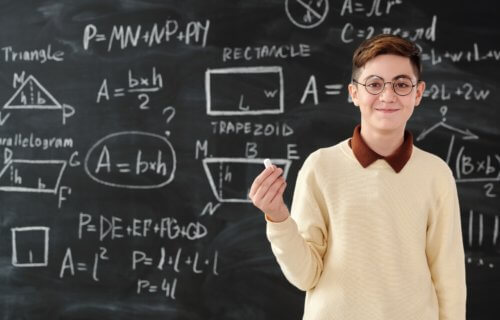BALTIMORE, Md. — Students who wear glasses often get a reputation for being “the smart kids,” but a new study finds eyeglasses could help unlock the intelligence in many children who unknowingly have weak eyesight. Researchers from Johns Hopkins University find that getting students the glasses they need significantly boosts their academic performance over the next school year.
During a three-year clinical trial, children receiving new glasses through the Vision for Baltimore program scored higher on reading and math tests in comparison to students who did not get glasses or got them later on. Vision for Baltimore launched in 2016 after John Hopkins researchers discovered a serious need for vision care among the city’s public school students. They found that up to 15,000 of Baltimore’s 60,000 pre-K through 8th-grade students needed glasses, but many either didn’t know or their families didn’t have the means to get them.
“We rigorously demonstrated that giving kids the glasses they need helps them succeed in school,” says senior author Megan Collins, a pediatric ophthalmologist and an associate faculty member at the Johns Hopkins Berman Institute of Bioethics, in a university release. “The success of the Vision for Baltimore program model and research findings could advance health and educational equity for students across the country.”
Getting glasses leads to immediate school success
From 2016 to 2019, the team studied the performance of 2,304 students between grades 3 and 7 who received an eye health screening, eye exam, and new glasses from Vision for Baltimore. Researchers looked that their results in standardized reading and math tests at one and two-year intervals.
For children getting new glasses, their reading scores rose dramatically over the next 12 months and more significantly than children getting glasses later. Elementary students also saw their math scores rise sharply after getting glasses.
More specifically, results show girls saw “particularly striking improvements” after receiving new glasses. Special education students and children who had been among the lowest-performing students also saw major boosts.
Overall, students with glasses experienced an education boost equivalent to two to four additional months of learning in comparison to their classmates without glasses. For children in the lowest percentile of their classes, wearing glasses improved their performance by the equivalent of four to six months of additional schooling.
“The glasses offered the biggest benefit to the very kids who needed it the most—the ones who were really struggling in school,” Collins says.
“This is how you close gaps,” adds lead author Amanda J. Neitzel.
Making sure kids keep wearing their glasses
The study finds that the improvements after the first year of wearing glasses did not last into year two. The team suspects that a lot of this has to do with children not consistently wearing their glasses or losing or breaking their frames.
To make sure kids keep succeeding, study authors say school-based vision programs need to keep encouraging students to wear their glasses and also ensure children have the means to get new glasses when they need them.
“This study, grounded in thorough and rigorous research, has proven our most fundamental assumption in launching Vision for Baltimore six years ago—that providing kids glasses in their schools will significantly improve academic success,” Johns Hopkins University President Ron Daniels concludes.
“These results validate the dedication of all of the program’s committed partners, from the principals, staff, and teachers across Baltimore City schools to the optometrists at Vision to Learn and the school vision advocates from Johns Hopkins. Looking forward, we hope to work with our state and city leaders to ensure that this impactful program has sustainable funding for years to come.”
The study appear in the journal JAMA Ophthalmology.

You are biased sir